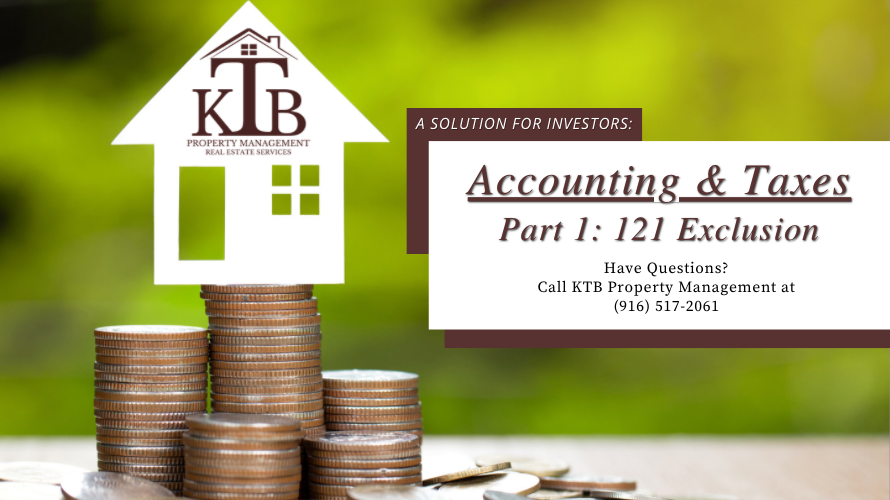March 26, 2021 from the professional blog of PURE Property Management
Accounting and Taxes Part 1: 121 Exclusion
A prime challenge that landlords encounter when managing their own investment property is proper accounting.
Among many things this includes all rental income and other various expenses surrounding your property. This is where professional property managers can utilize management specific software that helps to make this task consistent, accurate and much easier for you come tax time. And there are a number of accounting items that many homeowner-turned-landlord overlook. Foremost is the capital gains 121 exclusion. Section 121 of the Internal Revenue Code is often referred to as the 121 exclusion
The 121 exclusion can only be used together with real property that has been held and used as the homeowner’s primary residence. This tax break allows homeowners to sell real property held (owned) and used (lived in) as their primary residence and exclude from their taxable income up to $250,000 in capital gains per homeowner, and up to $500,000 in capital gains for a married couple filing a joint income tax return. With vacation homes, second homes or homes that are held for rental investments or trade this exclusion does not apply.
You must have lived in and owned the property as your primary residence for at least 24 months during the last 60 months to qualify for the 121 exclusion. Those first 24 months do not have to be continuous. There are exceptions to the 24-month requirement. Some of these exceptions include a change of health, employment, military service or other “unforeseen circumstance”. To sum up, if you have been living in your home for at least 2 years and have equity in the home, talk to your financial advisor about this exclusion. Keep in mind that you don’t want to rent it out longer than the above requirements demonstrate. When selling the property, you don’t want to find yourself in a situation where you no longer qualify for the capital gains exclusion, leaving you hit with capital gains tax.
To be continued ...











